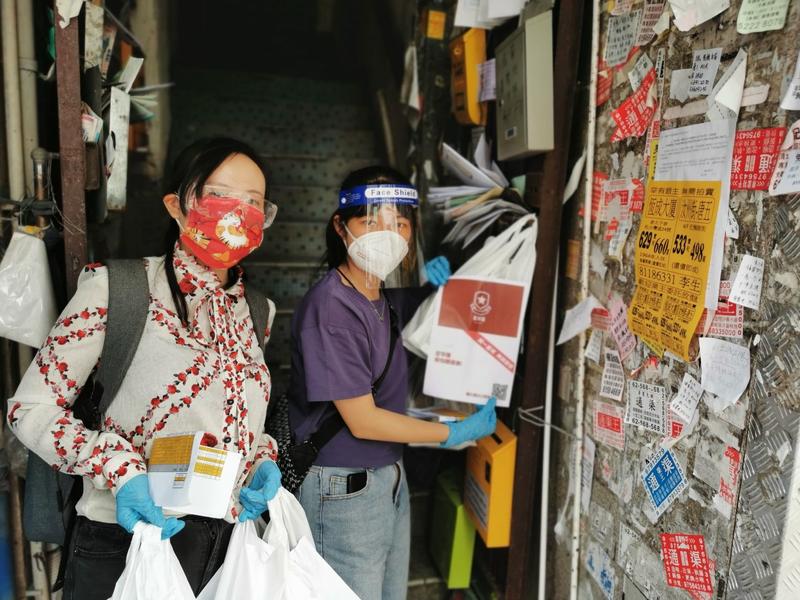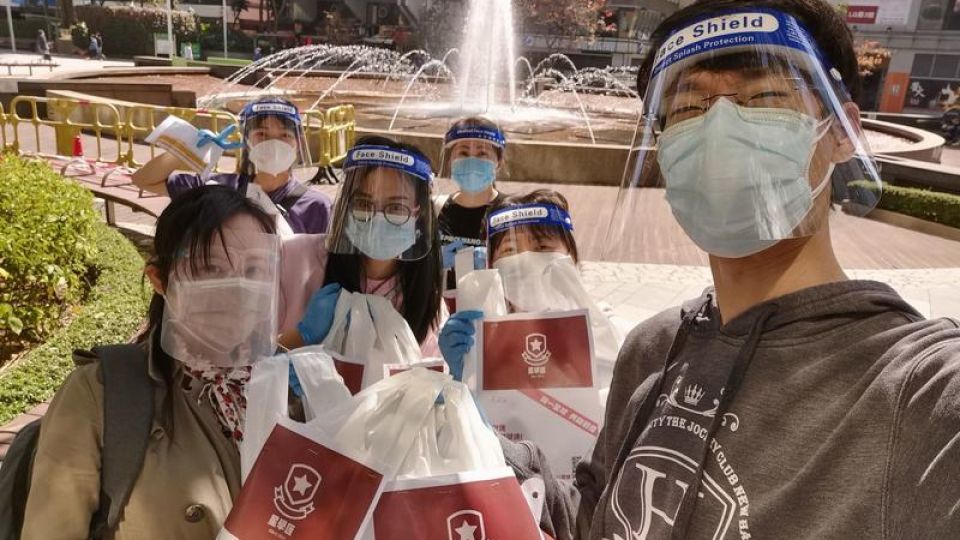March 18, 2022
HONG KONG – Saying they want to be a “bridge” between Hong Kong and the Chinese mainland, a group of students is helping bring in COVID-19 medicines to the city while assisting families who are isolating at home due to the pandemic.
Launched in 2013 by a group of Hong Kong youth who are studying in or have graduated from mainland universities, StarianHK aims to build up the connection between the community and the mainland and provides education and career consulting services.
StarianHK currently has more than 500 members, including mostly Hong Kong youngsters as well as mainland students in the city
It currently has more than 500 members, including mostly Hong Kong youngsters as well as mainland students in the city.
“We want to be a bridge between the Chinese mainland and Hong Kong. Otherwise, those people on the mainland hoping to send supplies to the city may not have the know-how,” said Vic Lam Chin-pang, an architect in his 30s who founded StarianHK after he graduated from Tsinghua University.
After receiving his bachelor’s degree from Huaqiao University and master’s at Tsinghua University, Lam spent seven years on the mainland before returning to Hong Kong. Besides being a full-time architect, he also volunteers his after-work time helping those in need fight the virus.
Lam is helping distribute anti-pandemic aid kits that include traditional Chinese medicines — including Lianhua Qingwen Jiaonang, and Jinhua Qinggan Keli, two medicines widely applied in the country’s anti-epidemic work — to students and their family members in isolation because of COVID-19.

StarianHK volunteers distribute anti-pandemic supplies to residents near East Tsim Sha Tsui on March 12, 2022. (PHOTO PROVIDED TO CHINA DAILY)
“It’s hard to see them being infected with the virus and without any help,” he said with a sigh. “The fifth wave broke out so abruptly. We saw many people getting COVID-19, including many of our friends and juniors who have studied in the mainland.”
He also helps take care of the families of those who are still studying or working in the mainland, “Sometimes, their parents got infected without anyone looking after them. We contact the parents and deliver the drugs to the door.”
Lam and his teammates, totaling eight to 10 people, have distributed about 300 boxes of TCM, helping around 50 families in the city since the outbreak of the fifth wave of infections.
The medicines are either purchased locally by themselves or shipped from the mainland by the students there.
“We have many friends on the mainland who have been connecting with the pharmaceutical companies. They have also bought some drugs locally and have them shipped to us,” he said.
Lam said logistics is a major hurdle in receiving those donations because of customs regulations.
“Many pharma companies care for what’s happening in Hong Kong very much and want to make donations, but we are still trying to work around the clearance procedure,” he said.
The group has also held online seminars on pandemic protection and treatment, inviting both Western and TCM doctors who have received education and training on the mainland.
“The outbreak hit many people who were unprepared. Many students and their parents didn’t know what to do, so we organize the seminar for them to directly consult the doctors.”
Lam said he had also helped distribute anti-pandemic supplies such as surgical masks, bleach and protective gloves to those in need in the city when the COVID-19 first broke out in Wuhan in 2020.
“Surely our family members worry about us, but the thought of our pals being infected and helpless prodded us to do this. We have to do this,” he said.

The supply kit from StarianHK includes various traditional Chinese medicines, including Lianhua Qingwen Jiaonang, and Jinhua Qinggan Keli. (PHOTO PROVIDED TO CHINA DAILY)
Vincent Ng Man-pan, a Peking University student majoring in Chinese Modern History, said he is busy these days managing StarianHK’s anti-pandemic work.
He said there’s a growing number of Hong Kong students pursuing education in mainland universities, including popular campuses such as Huaqiao University and Jinan University.
Currently, 16,000 Hong Kong students are enrolled in mainland universities, with around 4,000 to 5,000 students newly admitted in the 2021-22 academic year, according to the HKSAR Education Bureau.


